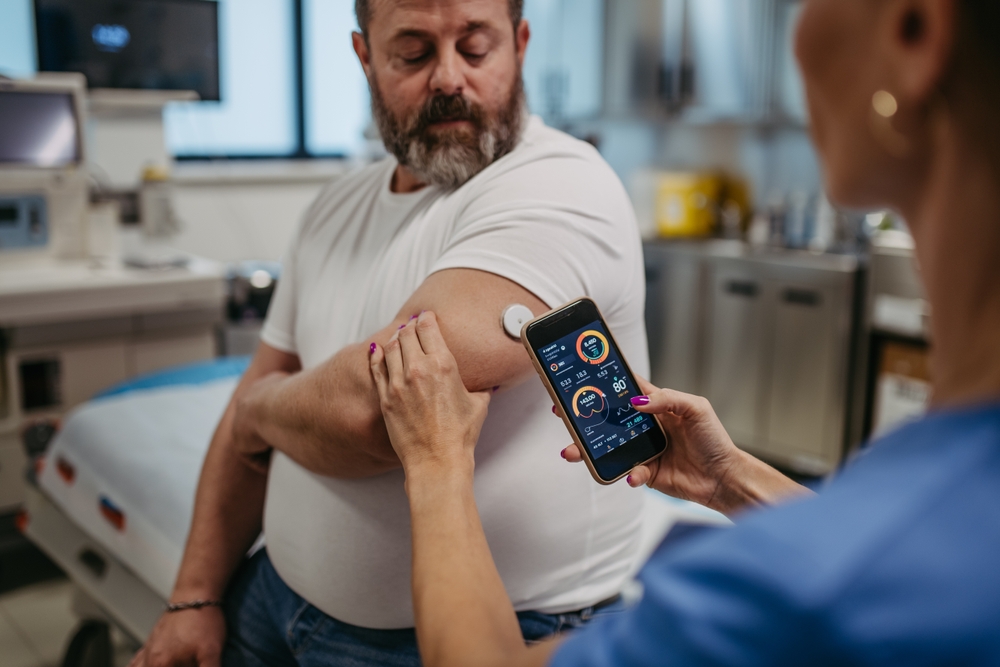How to Stay Ahead of Health Problems with Early Detection
Introduction
Staying healthy is important to all of us. But did you know that you can help stop some health problems before they even start? This is called “early detection,” which means catching small signs of health issues early on, before they become bigger problems. By taking a few simple steps, you can stay on top of your health and feel your best.
In this guide, we’ll explore what early detection means, why it’s important, and how you can make sure your body is healthy and ready for anything!
What Does Early Detection Mean?
Early detection is like finding out about a problem early so it’s easier to solve. When it comes to health, early detection means catching health issues when they are still small and easier to treat. This might be noticing a strange new mole on your skin, or maybe the doctor finds something unusual in a check-up that you didn’t even know was there.
For example, imagine a tiny crack in a wall. If you notice it early, it’s easy to fix with a little bit of paint and repair. But if you ignore it, that crack might grow and become a big problem that’s harder to fix. Early detection for health works the same way—it’s about paying attention to little things before they become big issues.

Why Early Detection Helps Keep Us Healthy
Early detection is important because it helps us keep control over our health. By catching issues early, we can:
- Choose simpler treatments: If a health issue is caught early, the treatment might be simpler and work better.
- Feel better, faster: Finding and treating health problems early can help you feel better sooner.
- Save on medical costs: Taking care of health issues early can sometimes cost less than waiting until they get bigger.
- Stay active and happy: When you’re on top of your health, you’re more likely to feel strong, active, and ready to do all the things you enjoy.
How to Stay Ahead of Health Problems
1. Get Regular Check-Ups
Going to the doctor regularly is one of the easiest ways to catch health issues early. A check-up is like a “health review” where the doctor checks how you’re feeling, even if you’re not sick.
- Yearly Check-Ups: Most people try to go for a check-up once a year. The doctor might check things like your weight, height, blood pressure, and heart rate.
- Update Your Vaccines: Check-ups are also a great time to get any vaccines you might need. Vaccines help protect you from getting sick with certain diseases.
- Ask Questions: If you have questions about your health or any unusual symptoms, this is a good time to ask your doctor.

2. Know Your Family Health History
Your family’s health history is like a map that can show the health conditions you might be at risk for. Some health issues, like diabetes or heart disease, can run in families.
- Make a List of Family Conditions: Write down any major health issues that people in your family have had, such as high blood pressure, diabetes, or cancer.
- Share With Your Doctor: Knowing your family health history can help your doctor recommend specific tests or screenings to help keep you healthy.
3. Watch for Changes in Your Body
Your body often gives little signs if something isn’t right. Paying attention to any unusual changes can help you catch health problems early.
- Look for New Symptoms: Notice if there’s anything unusual, like sudden weight changes, feeling tired all the time, or if you get headaches often.
- Check Your Skin: Keep an eye on any moles or spots. If a mole changes color, shape, or size, it’s best to have it checked.
- Listen to Your Body: If you start feeling different or notice aches and pains that won’t go away, talk to a doctor.
4. Learn About Health Screenings
Health screenings are tests that help find health issues even if you don’t feel sick. These tests can catch problems early so they don’t become more serious.
- Blood Pressure Check: High blood pressure doesn’t always have symptoms, but it can lead to serious problems. Regular checks help keep it under control.
- Cholesterol Test: Cholesterol is a type of fat in your blood. Too much cholesterol can lead to heart problems, so a test can show if you need to make any changes.
- Blood Sugar Test: This test checks the sugar levels in your blood and can show if you’re at risk of diabetes.
- Regular Dental Check-Ups: Going to the dentist helps keep your teeth and gums healthy, which is important for overall health.
Each person’s screening needs may be different, so ask your doctor which screenings are right for you.

5. Keep a Healthy Lifestyle
Living a healthy lifestyle is one of the best ways to stay ahead of health problems. Here are some easy ways to take care of your body every day:
- Eat Nutritious Foods: Try to eat a balanced diet with fruits, vegetables, proteins, and whole grains. These foods give your body the vitamins and nutrients it needs.
- Exercise Regularly: Being active keeps your muscles and heart strong. Aim for at least 30 minutes of activity each day, like walking, running, biking, or playing sports.
- Sleep Well: Sleep helps your body rest and repair. Try to get 8-10 hours of sleep each night.
- Avoid Smoking and Limit Sugary Drinks: Smoking and too much sugar can harm your body over time. Choosing water or milk over soda and staying away from cigarettes can help keep you healthy.
Tips for Talking to Your Doctor
It’s normal to feel nervous when talking to a doctor, but remember that doctors are there to help! Here are some tips to make your doctor’s visit easier:
- Prepare Your Questions: Write down any questions you have before your visit. This will help you remember what to ask.
- Be Honest: If something doesn’t feel right, tell your doctor. Even if it feels embarrassing, they are there to listen and help you.
- Take Notes: Bring a notebook to write down any advice the doctor gives you. It can be hard to remember everything, so notes are helpful.
FAQs
- What is early detection, and why is it helpful?
- Early detection is catching health issues before they become serious. It’s helpful because it can make treatment easier, give better results, and help you feel healthy.
- How often should I go for a health check-up?
- Most people try to go at least once a year. Regular check-ups help your doctor keep track of your health.
- What are some common health screenings?
- Common screenings include blood pressure checks, cholesterol tests, and blood sugar tests. Your doctor can tell you which screenings are best for you.
- How can I tell if something is wrong with my body?
- Pay attention to unusual changes, like sudden weight loss, tiredness, or skin changes. If something feels different or lasts a long time, tell a doctor.
- How does lifestyle affect early detection?
- Healthy habits like eating well, exercising, and sleeping enough make it easier to spot health issues early. Taking care of your body can reduce the risk of problems.
Conclusion
Staying on top of your health with early detection is a smart way to feel your best and avoid bigger health problems. Regular check-ups, paying attention to changes in your body, understanding screenings, and living a healthy lifestyle are all easy ways to stay healthy. By making a few simple choices each day, you can give yourself the best chance to stay active, strong, and happy. Remember, it’s never too early to start taking care of your health!



